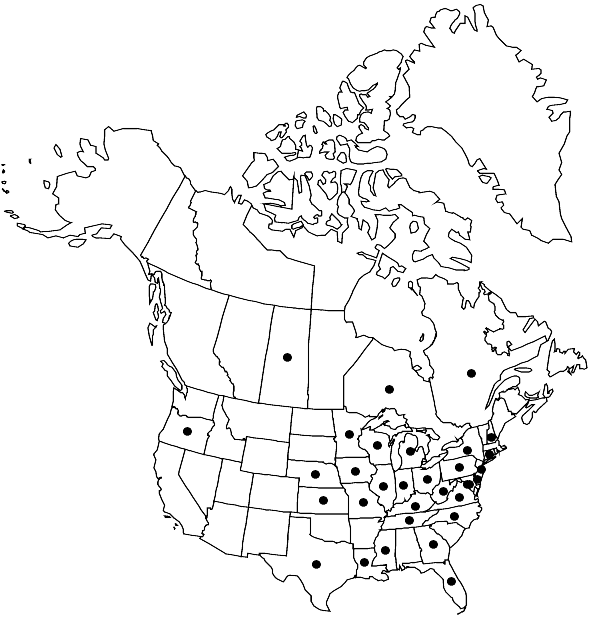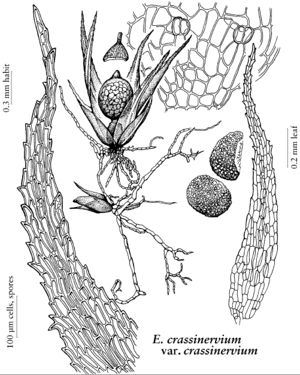Ephemerum crassinervium var. crassinervium
Plants less than 2.5 mm. Leaves broadly linear to lanceolate, 0.8–2.5 × 0.15–0.4 mm; margins serrulate to strongly serrate distal to the proximal third; apex slenderly acuminate, papillose; costa not always apparent at the base, often filling the acumen, percurrent; areolation compact distally; median laminal cells smooth or slightly papillose; distal laminal cells somewhat papillose. Capsule with very few stomates, mostly near the base. Spores spherical or reniform, 43–107 × 35–75 µm, orange-brown.
Phenology: Capsules mature year around.
Habitat: Moist or drying disturbed soil
Elevation: low to moderate elevations (0-1000 m)
Distribution

Ont., Que., Sask., Conn., Del., D.C., Fla., Ga., Ill., Ind., Iowa, Kans., Ky., La., Md., Mich., Minn., Miss., Mo., Nebr., N.H., N.J., N.Y., N.C., Ohio, Oreg., Pa., Tenn., Tex., Va., W.Va., Wis., Europe (Germany), e Asia (Japan), Pacific Islands (New Zealand).
Discussion
Selected References
None.
